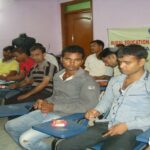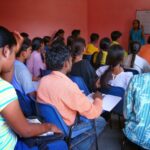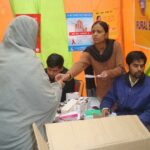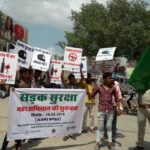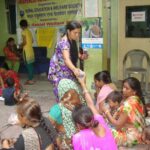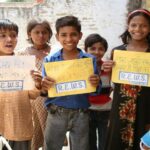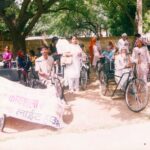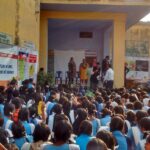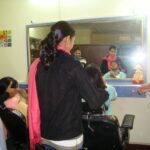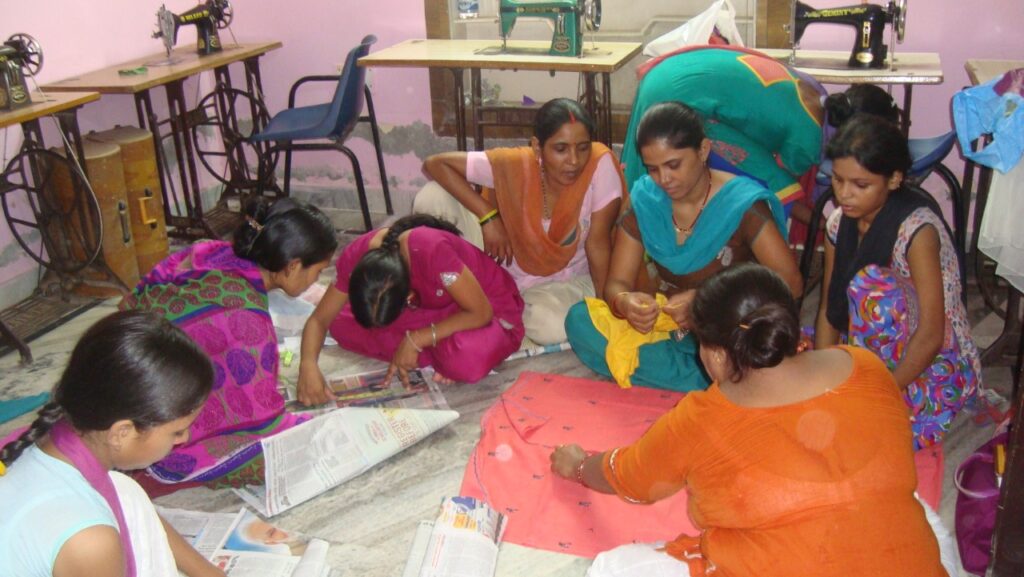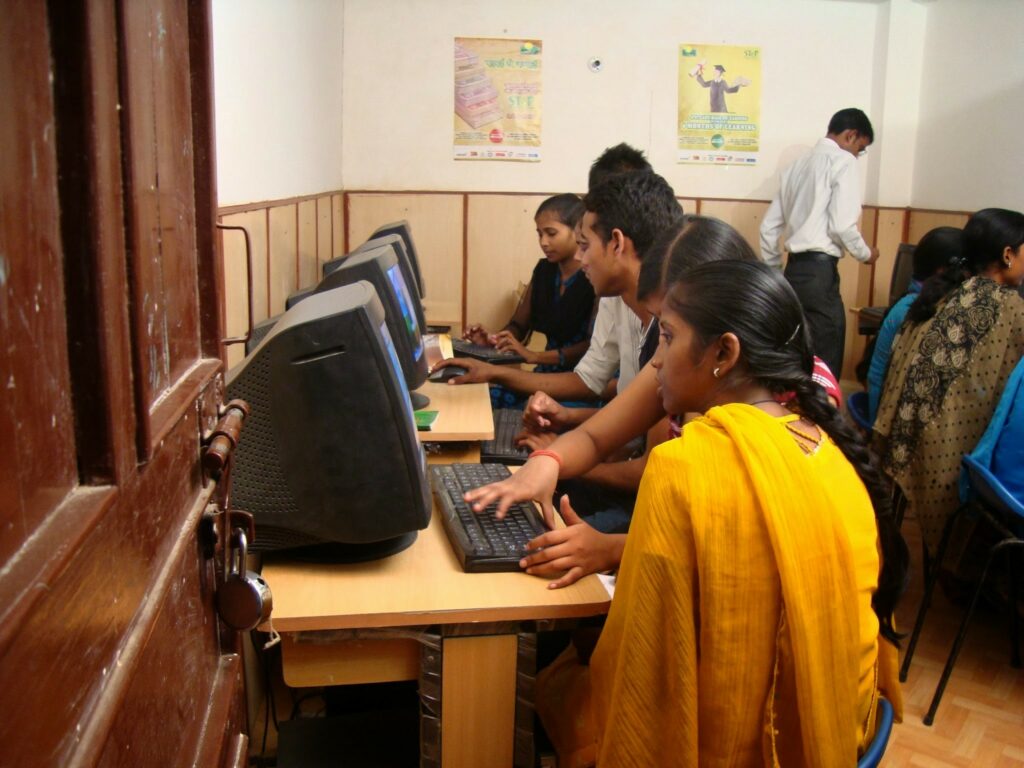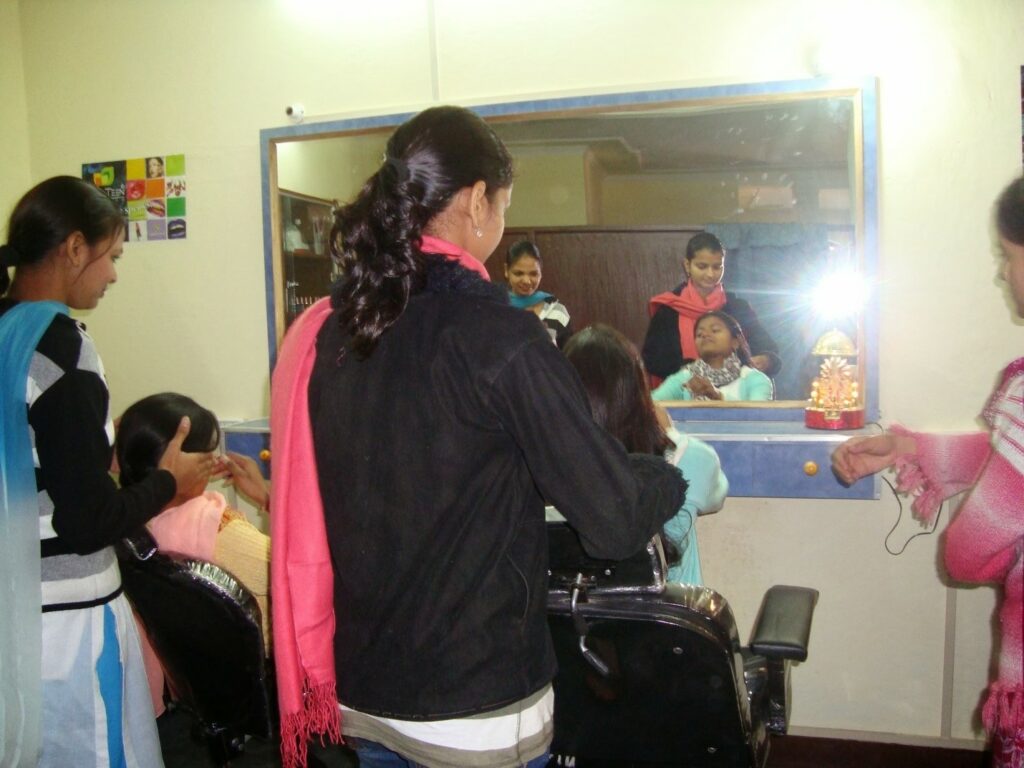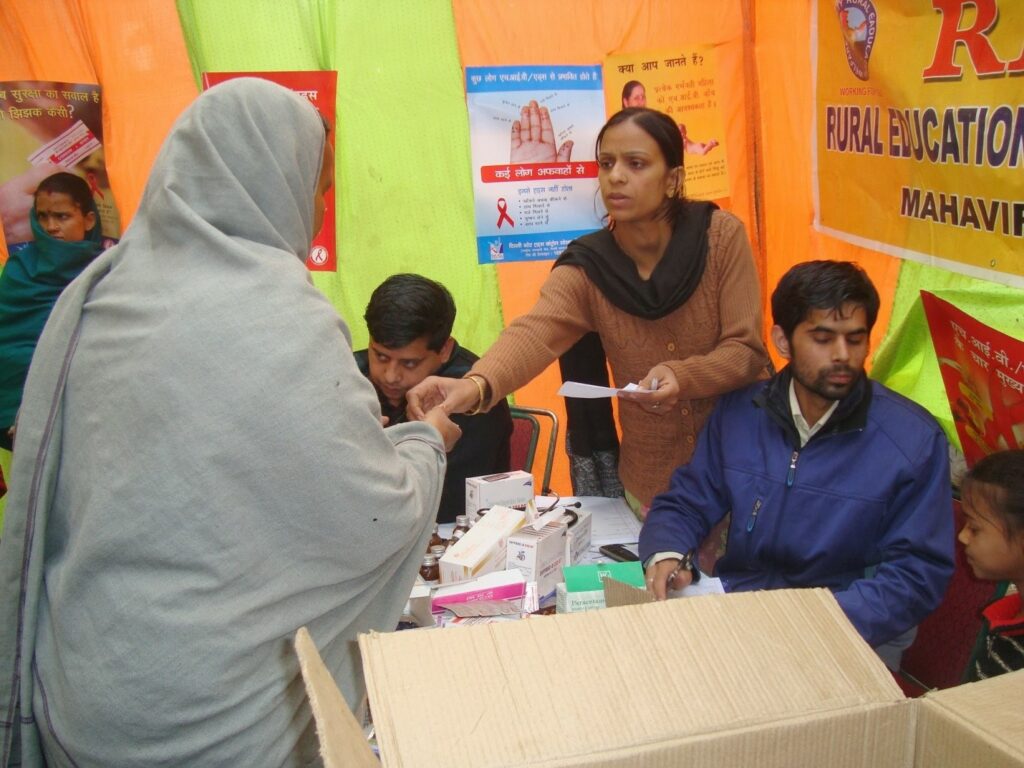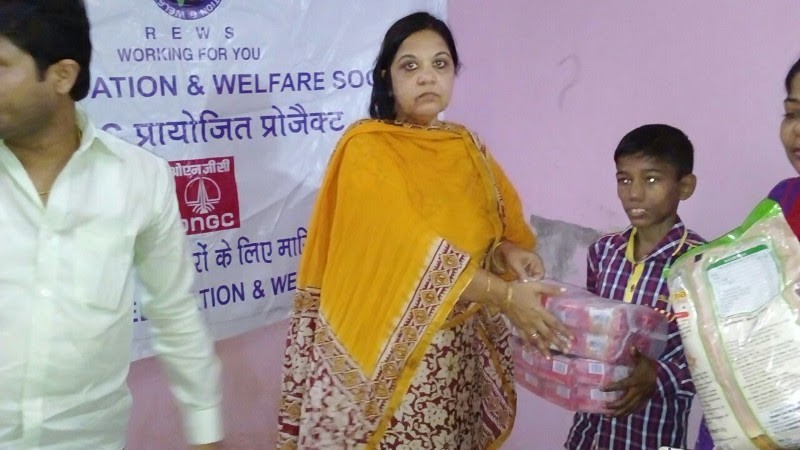Education and Awareness Programs
Education and Awareness Programs
Child Education (Remedial and Bridge education)
School-going children from slums area in and around Mahavir Enclave in South-west Delhi are provided remedial (tutorial) education through non-formal mode in order to equip them to cope up with school syllabus, lessen fear of failure and perform well in examination- resulting into reduction in drop-out.
A Basic Education Centre (BEC) has been started in Mahavir Enclave of South-West Delhi. There are 348 children. Regular classes are held. Children are also given books and other educational materials free of cost along with mid-day meal. Other activities under education program include storytelling, poetry recitation, painting and indoor games.
REWS has been covering 348 children in age group 4-14 studying in class IV-VII in different formal government schools; majority (70%) of them scoring at least 60% marks in their examinations.
Also out-of-school children are brought under the network- providing appropriate education bridging the gap between their existing level of learning (knowledge) and appropriate class in school they can be mainstreamed.
Health Education
Awareness program on health, hygiene is conducted periodically every month for young mothers and adolescent girls. This includes home-based preventive health care practices, low-cost nutrition and safe drinking water, personal hygiene including menstrual hygiene and sanitation practices. On an average, about 40 women/ girls attend the program which is conducted in different slum areas/ localities.
The women participants are also sensitized about maternal and child health, child rights; gender issues, rights and equality; girl child education and government’s initiatives promoting child education- Rights to Education (RTE) Act; social welfare schemes particularly for girl child; social justice institutions.
Awareness Programs
Awareness Workshops for physically handicapped:
REWS organized an Awareness Workshops for physically handicapped persons at Delhi public school on 12. 01.2015. It focused on programs and policy of Govt. which was supported by Institute of Physically Handicapped Under Social Justice and Empowerment Govt. of India.
Resource persons were from NHFDC, SC/ST/OBC Minorities Commission and Handicapped Financial and Development Corporation have been speakers.
250 Wheel Chairs and 60 Crutches were distributed to the beneficiaries.
Awareness Generation Project (AGP):
An Awareness Generation Project was implemented by REWS for Rural and Poor women. The project of 8-day’s duration was supported by Central Social Welfare Board (CSWB) in the year 2013. It focused on orienting/ sensitizing women on fundamental rights, welfare schemes (education, health, employment) of the government, banking facilities etc.
Awareness for prevention of Quackery in Community:
An awareness campaign for 2 – days was conducted at Kusumpur Pahari JJ cluster on 25/08/2013 for prevention of Quackery which was supported by the Directorate of Health Services Delhi.
Community Mobilization and awareness generation
Sensitization and awareness generation program, from time to time (at least once every two-months), has been an important activity. It also helps in mobilizing Community. The program covers relevant social issues such as child rights; gender and equality, child education (reasons for dropout), health and hygiene, low-cost and short-term vocational skill training for home-based economically gainful activities etc.
The program helps building confidence in women and encourages them to voice their concerns and viewpoints with regard to needed community level interventions, decision making- leading to possible escalation of program activities and also in expanding geographic rich.
The program also helps to solicit their cooperation and support for the program.
Consumer Awareness – Jaago Grahak Jaago
REWS has been actively putting efforts to aware consumers about their rights. The market is constantly being flooded with new products and services, making it difficult for consumers to choose the right products . Consumer awareness is about asking questions, to learn the specifics of a product or service. It is about comparing products and services from different sellers to learn more information. It is about having the freedom to choose what best suits consumer needs and will not harm the consumer. Consumers are not without rights and consumer awareness is about advancing these rights.



